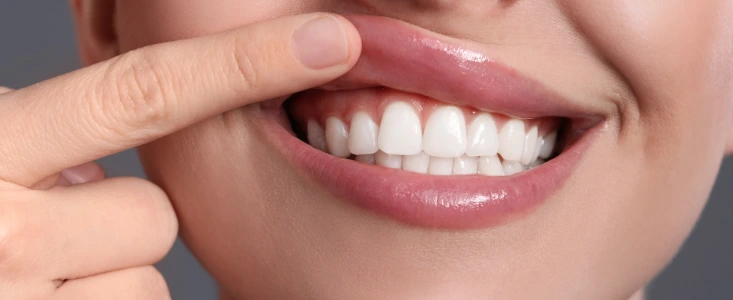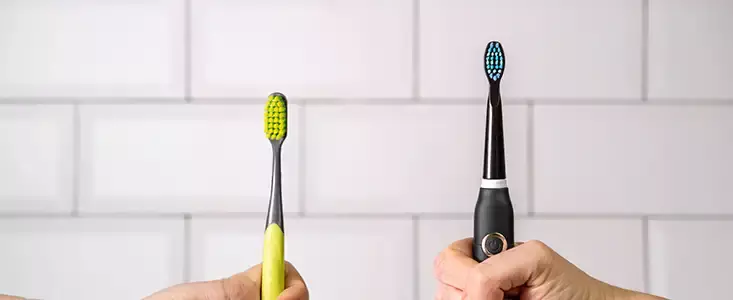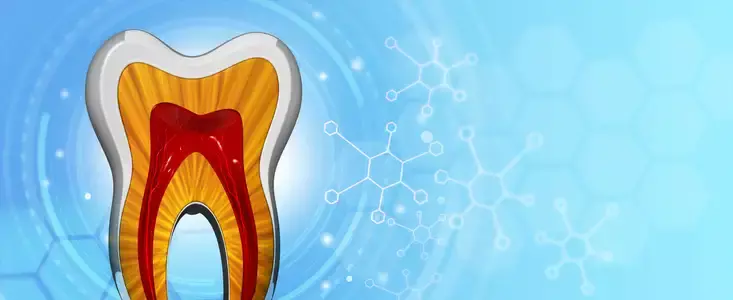Do you experience discomfort when you brush your teeth? Or wince whenever you eat or drink something cold or hot because it sends a shooting pain through your teeth? If so, you are suffering from tooth sensitivity— a misunderstood, common dilemma. Many people believe that tooth sensitivity is an unavoidable and untreatable genetic problem. However, you can take steps today to protect your teeth and find relief from tooth sensitivity.
What Causes Tooth Sensitivity?
Tooth sensitivity occurs when tooth enamel wears down. Enamel is the thin outer covering of your teeth that acts as a shield to the inner parts of your teeth. If the enamel begins to erode, extremely hot, cold, sweet, or acidic foods and drinks have access to the tiny tubules in the dentin, reaching the nerves in your teeth. Therefore, you might feel a sharp pain searing through your tooth. In most cases, you can prevent the erosion of enamel by taking care of your teeth, brushing gently, and avoiding sugary drinks.
How Can I Relieve Tooth Sensitivity?
If you experience tooth sensitivity, begin incorporating these six steps into your oral hygiene routine, and you’ll soon find relief.
1. Brush Gently: When you brush your teeth with a firm grip on the toothbrush and brush aggressively, you accelerate the erosion of enamel or cause your gum to pull away from your teeth and expose the nerves. Instead, use a soft-bristled toothbrush, making short, gentle strokes in an up-and-down motion. Check out this post for more information on proper brushing techniques.
2. Get a New Toothpaste: Look for a desensitizing toothpaste with the ADA seal of approval. This toothpaste contains a compound that helps prevent painful sensations from traveling from the tooth to the nerve. When used twice daily, you will notice reduced tooth sensitivity within weeks.
3. Avoid Acidic Drinks: Acidic foods and drinks wear away your enamel, so limiting them regularly will protect your teeth from sensitivity. This includes carbonated sodas, citrus-based fruit juices, and citrus fruits. Include citrus fruits as part of a meal. The other food products will lower the pH balance in your mouth and reduce damage to your enamel.
4. Use a Mouthguard: If you grind your teeth, you will wear down your enamel. Talk to your dentist about getting fitted for a mouthguard to wear while you sleep if you grind your teeth at night. If you tend to grind your teeth under stress, it’s crucial to practice mindfulness, meditation, or add a form of exercise into your routine to lower your stress levels.
5. Rinse with Mouthwash: Fluoride is found in most over-the-counter mouthwashes. Fluoride helps strengthen your enamel and protect against tooth decay and cavities. After you brush your teeth, rinse daily with an ADA-approved mouthwash.
6. Visit Your Dentist: Sensitive teeth are a warning sign for more serious dental issues like a fractured tooth, worn fillings, exposed roots, or gum disease. If you’re experiencing tooth sensitivity, don’t wait to make an appointment at your dentist’s office. In fact, bi-annual routine visits will help protect your teeth from damage and reduce the risk of enamel erosion.
Make an appointment today at Atkins and Anderson, DDS if you have sensitive teeth and want to discover what the underlying issue is. Our family dentistry has been serving Bryan-College Station for decades. Contact us today with questions about tooth sensitivity or schedule an appointment for the whole family.
Share
STAY IN THE LOOP
Subscribe to our free newsletter.
Leave A Comment
Healthy gums are the foundation for a healthy smile because they support and protect your teeth. That’s why gum health is essential for a bright and beautiful smile. Here are some six tips to help keep your gums (and smile!) healthy. Brush Your Teeth Twice a Day Brushing your teeth twice daily is crucial for





